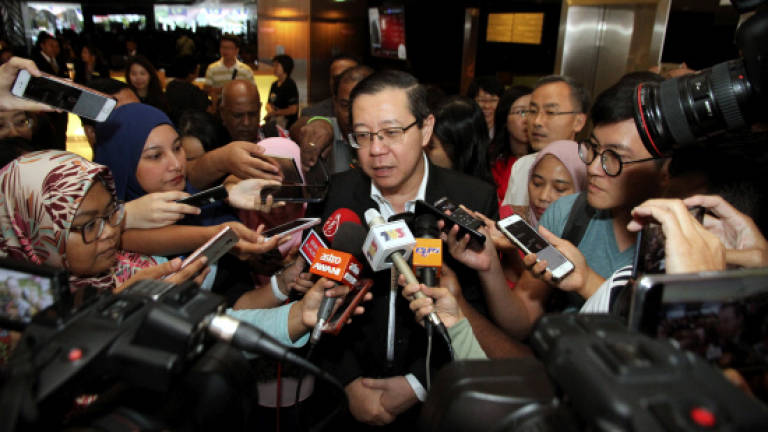Duty-free islands not subjected to SST, Guan Eng confirms

BUTTERWORTH: Malaysia's duty-free islands of Langkawi, Labuan and Tioman will not be subjected to the newly enforced Sales and Services Tax (SST), said Finance Minister Lim Guan Eng.
Lim clarified the confusion which has arisen over the issue, especially after an online portal reported that certain items will be affected by it.
A sales tax would reportedly be imposed on the importing of wine, spirit, beer, malt liquor and tobacco into designated areas.
"Designated areas" here are listed in the newly unveiled Sales Tax Act as Labuan, Langkawi and Tioman — which are duty-free islands.
It was also reported that sales tax will be imposed on the importation of marble and anchovies into Langkawi and automobiles into Tioman.
SST came into effect on Sept 1 this year in what Lim describes as a friendlier form of consumption tax to replace the multilayered Goods and Services Tax (GST), which Pakatan Harapan leaders had blamed for a steep rise in living costs.
Lim explained that the duty-free status in the three island resorts would not be compromised – it remains and there is no SST imposed.
"It is similar to the GST. It was not enforced in the duty-free havens so likewise SST is also not enforced there," Lim said.
Langkawi Businesses Association deputy president Datuk Alexander Issac told theSun that traders there are aggrieved over the matter.
"We are already reeling from the drop in (tourism receipts). Tourists may be coming but we are not registering revenue as reasonable as previously. Also, there is the high operating costs which we are besieged with."
And to be slapped with SST on certain items coming into Langkawi, may see another hike in the prices of items which are touristy in nature such as alcohol and tobacco, said Alexander.
In turn, it may drive up the costs of holidaying in Langkawi – that is a big no from the travel community here, said Alexander.
Earlier, Lim attended a briefing on the SST and told a press conference that there are technical hiccups and misinterpretations as SST was just reintroduced after a period of GST.
"But let me assure you that we will clarify and address any misgivings over the matter. We hope the people understand that SST is crucial to the public coffers."
The level of debt, as well as the tax holiday granted as part of the process to abolish GST, have put a dent on the country's treasury coffers.
"We may not be able to pay the salaries of the civil staffers (without SST)," Lim said.
Hence, the SST collection was aimed at helping mitigate the funds for the public sector to function as effectively as it must, he added.
Under the SST, the sales tax will be collected at either five percent or 10%, while service tax was pegged at six percent.